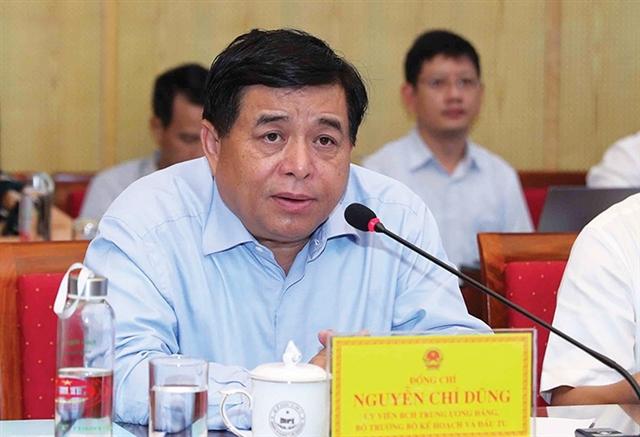New bailout put forth to aid recovery
New bailout put forth to aid recovery
Following an initial bailout currently under implementation, the Ministry of Planning and Investment and relevant governmental agencies are mulling over another support package to help businesses stay afloat and spur on economic growth amid the ongoing pandemic.

Minister Dung discussed a new bailout to continue assisting the public and businesses
|
Amidst the complicated global impacts of the COVID-19 crisis, Minister of Planning and Investment Nguyen Chi Dung last week proposed another bailout in a bid to dispel difficulties in production and business, as well as aiming to retain social stability. Minister Dung highlighted that solutions should focus on small- and medium-sized enterprises (SMEs), create a large number of jobs while avoiding firing employees, and boost business so they can resume operations. “Big companies that are facing some challenges, because fixed costs and maintenance costs are too huge while revenues decrease significantly, will also be beneficiaries of the new bailout,” he stressed.
At first, Minister Dung proposed to extend the policy effects in the previous bailout to 2021 if the pandemic continues unabated. Such policies as delaying the payment timelines of VAT, corporate and personal income tax, and land rental fees, and all policies in Decree No.41/2020/ND-CP released in April on tax and land rent deferrals will be extended to the end of the year.
Circular No.01/2020/TT-NHNN, enacted in March on debt rescheduling exemption or reduction of interest and fees, is also being considered for extension of implementation to support corporate clients affected by COVID-19. It could even be amended for businesses to more easily enjoy the policies.
“It is necessary to provide better financial policies to strengthen production and consumption, as well as deliver vouchers, or government supply of goods to people who suffer difficulties caused by social distancing, in order to guarantee essential needs and promote local consumption,” Minister Dung proposed.
He emphasised the importance of the new bailout, which should not only strengthen development of various industries and attract foreign direct investment and innovation, but also should be robust enough to strengthen the economy as well as cover a variety of beneficiaries.
According to the Ministry of Planning and Investment (MPI), the pandemic has hurt most socioeconomic sectors, especially aviation, tourism, and catering. Many have already gone bankrupt or been dissolved, or had operations suspended or scaled down.
Meanwhile, employee incomes have also been affected significantly, as unemployment rises. The incomes of around 17.6 million people have dropped during the pandemic, leading to a fall in local consumption. The number of enterprises suspending their operations in the first seven months of the year jumped by 41.5 per cent on-year to 32,700. The performance of the first bailout, valued at tens of billions of US dollars including a VND62 trillion ($2.7 billion) package to support the poor and unemployed, has not been as successful as intended. As of mid-July, around VND11 trillion ($478.2 million) was delivered to 11 million people as well as 9,400 business households.
After the issuance of Decree 41, the Ministry of Finance estimated that the number of firmss that could enjoy the support was about 700,000, or 93 per cent of the total across the country, while the amount of tax and land rental fees with extended timelines was estimated at VND182 trillion ($7.9 billion). However, in fact, only 179,000 documents were sent to tax agencies and localities as of the end of July to delay the payment of tax and land rental fees, with the amount over VND53.6 trillion ($2.3 billion), equivalent to 29 per cent of expectations.
Nguyen Duc Huy, deputy chief of office at the General Department of Taxation, explained that COVID-19 pulled most enterprise revenues and profits to zero or even a loss, and so they do not require extension of payment timelines. “Also, some of those with good business do not need to delay the tax or land rental payment timeline,” said Huy.

























